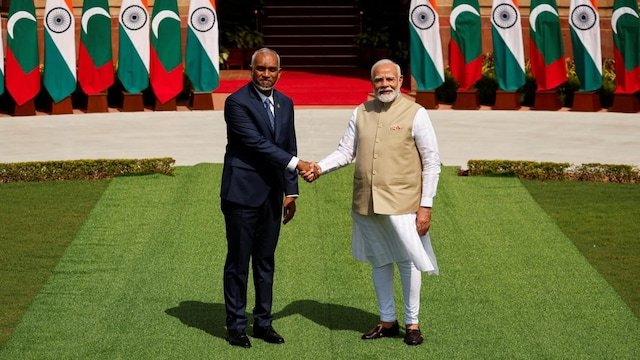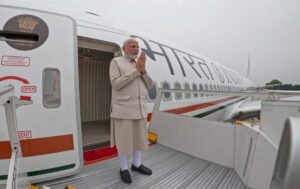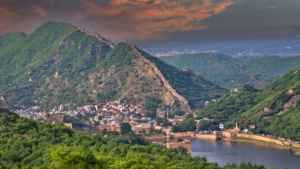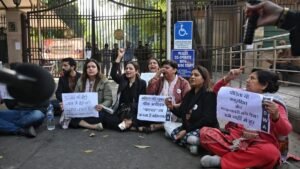Diplomatic relations between India and the Maldives reach fresh heights following this significant visit announcement. PM Modi’s upcoming journey represents a major shift in regional relationships that faced considerable strain recently. The trip signals renewed cooperation between these vital Indian Ocean neighbours after months of tension.
Understanding the Recent Diplomatic Challenges
Recent diplomatic tensions between India and the Maldives created uncertainty across the entire South Asian region. Political changes within the Maldives government led to strained relationships and reduced cooperation on various fronts. Trade partnerships, security agreements, and cultural exchanges all faced significant disruptions during this difficult period.
The previous Maldivian administration adopted policies that many viewed as less favourable toward traditional Indian partnerships. Chinese influence within the island nation grew substantially, raising concerns about shifting regional power dynamics. Security experts worried about potential implications for broader Indian Ocean strategic stability.
Tourism boycotts and social media campaigns reflected the depth of public sentiment regarding these diplomatic challenges. Indian travellers, who traditionally formed the largest tourist group visiting the Maldives, began choosing alternative destinations. Economic impacts became apparent quickly across both nations as business relationships deteriorated steadily.
Key Factors Behind the Relationship Turnaround
Leadership changes within the Maldivian government created opportunities for renewed diplomatic engagement and cooperation initiatives. The current administration has demonstrated a greater willingness to restore traditional partnerships with India across multiple sectors. Economic necessities also played crucial roles in motivating both sides toward reconciliation efforts.
Strategic geography makes cooperation between these nations essential for regional stability and mutual prosperity goals. The Maldives’ location along major shipping routes provides significant strategic value for Indian security interests. Meanwhile, Indian economic support remains vital for Maldivian development projects and infrastructure improvements.
Cultural and historical bonds between the peoples of both nations provide strong foundations for rebuilding trust. Shared Buddhist and Hindu heritage creates natural connections that transcend temporary political disagreements. Educational exchanges and family relationships also contribute to underlying social stability between communities.
Areas of Renewed Cooperation and Partnership
The visit is expected to address multiple areas where both nations can benefit from enhanced collaboration:
- Maritime security cooperation and joint naval exercises
- Tourism promotion and travel facilitation measures
- Infrastructure development and connectivity projects
- Trade agreements and economic partnership expansion
- Climate change initiatives and environmental protection
Maritime security represents one area where cooperation benefits both nations and the broader international community. Piracy prevention, search and rescue operations, and maritime domain awareness all require coordinated efforts. Joint naval exercises help build operational capabilities while demonstrating regional stability to global partners.
Tourism recovery remains a critical priority for the Maldivian economy following recent disruptions and pandemic impacts. Indian tourists historically comprised the largest visitor segment, making relationship restoration economically essential for recovery. Simplified visa processes and promotional campaigns could help rebuild confidence among Indian travellers.
Economic Implications of Restored Relations
Trade volumes between India and the Maldives could increase substantially following successful diplomatic normalization efforts ahead. Indian exports including food products, textiles, and manufactured goods serve essential roles in Maldivian daily life. Disrupted supply chains during tense periods created shortages and increased costs for ordinary citizens.
Investment opportunities in infrastructure development could expand significantly with improved political relationships and cooperation frameworks. Indian companies possess expertise in areas like renewable energy, telecommunications, and transportation that align with Maldivian development needs. Public-private partnerships could accelerate progress on critical infrastructure projects.
Financial cooperation through development assistance and favourable loan terms helps support Maldivian economic growth objectives. India’s approach emphasises capacity building and technology transfer rather than creating dependency relationships. This model appeals to smaller nations seeking to maintain sovereignty while accessing development support.
Regional Strategic Significance
The Indian Ocean region continues growing in strategic importance as global trade patterns evolve and expand rapidly. Competition between major powers for influence creates both opportunities and challenges for smaller island nations. The Maldives must balance relationships carefully while pursuing national development goals effectively.
China’s Belt and Road Initiative has provided alternative partnership options for many developing nations seeking infrastructure investment. However, concerns about debt sustainability and political conditions have prompted some countries to reconsider their approaches. The Maldives appears to be seeking more balanced relationships with multiple partners.
Regional organisations like the South Asian Association for Regional Cooperation benefit when member nations maintain positive bilateral relationships. Collective approaches to challenges like climate change, terrorism, and economic development require sustained cooperation among neighbours. Restored India-Maldives ties strengthen the entire regional framework.
Future Prospects and Challenges Ahead
Improved ties between India and the Maldives create positive momentum for addressing shared challenges and opportunities together. Climate change threatens the very existence of low-lying island nations, making international cooperation essential for survival. Rising sea levels and extreme weather events require coordinated responses and adaptation strategies.
Sustainable development goals align well with both nations’ interests in environmental protection and economic growth balance. Tourism must be managed carefully to preserve fragile ecosystems while providing necessary economic benefits. Green technology partnerships could help the Maldives achieve carbon neutrality while maintaining prosperity.
The success of this diplomatic reset will depend on the consistent implementation of agreements and sustained political commitment. Electoral cycles in both countries could bring policy changes that affect bilateral relationships. Building institutional frameworks that survive political transitions remains essential for long-term stability and cooperation success.








Be First to Comment